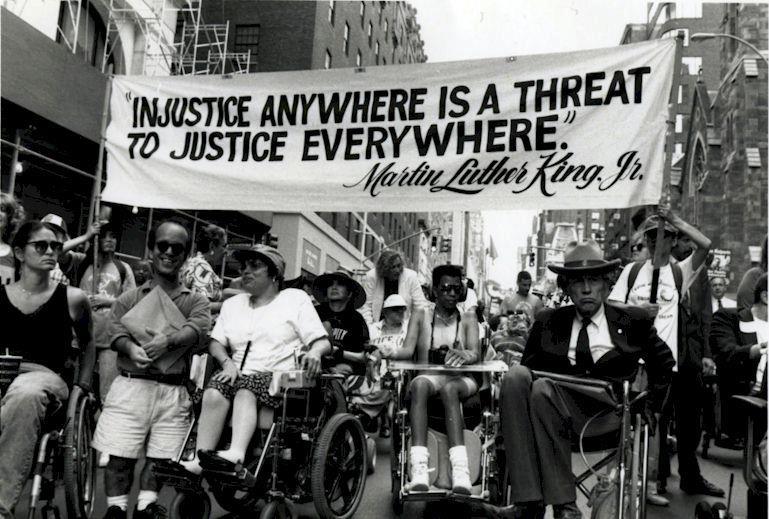How To Win An Advocacy Campaign
A Rant About Media Strategy
For years I traveled, giving speeches at disability conferences about how I defeated Alabama Medicaid and how you can too, in Chicago, Minneapolis, DC, and even in Dr. Martin Luther King’s church in Montgomery. It was a great opportunity.
I tried my best to teach people how to succeed with advocacy in a very difficult environment, and I think these skills are badly needed and going to be badly needed in in the long-term.
Advocacy must exist to challenge the goals and values of our society, not to play defense.
A major frustration is that just like the Southern Christian Leadership Conference and the NAACP, who were once powerful activists setting the agenda for civil rights in the 1960s, have turned into irrelevant suits, the disability rights movement is now primarily cloistered in board rooms crafting nebulous strategic plans and annual goals, leaving us here bleeding in the trenches feeling pretty helpless.
In my campaign I had to operate independent of the established advocacy bureaucracy, who were way behind the eight-ball and (despite my prodding) largely didn’t jump in to defend me until NPR covered my story. They remain way behind (10 years behind? 20?)
In order to win some real gains for people with disabilities, you have to intimately understand the current culture (i.e. the era where, by age 18, children have witnessed 16,000 murders on TV) and have a very aggressive media strategy that uses powerful, targeted language to break through the malaise and blahblahblah and make the listener do a spit-take and go “WHAT!!”
That’s how I won my campaign, that’s how MLK won his, by presenting the case in very stark terms. Traditional media efforts of the advocacy bureaucracy along the lines of “these policy changes may negatively affect our consumers!” and diplomatic language are failing ideas. Advocacy must exist to challenge the public’s goals and values, not to play defense. Advocacy must give a voice to the voiceless and tell their stories. Some groups actually tried to make me “tone it down,” and “don’t sound so shrill,” when my aggressive media efforts are exactly why I won. The same old corporate diplo-speak doesn’t make waves and may make sense to them, but it is a fundamental misunderstanding of American culture (which is about buzzwords, sound bites and grand, sweeping rhetoric) and if you’re down here in the bloody trenches, nothing is more frustrating than when the groups who’re supposed to be protecting us want to be diplomatic, play rudimentary defense and avoid calling a duck a duck. ADAPT barricading government buildings and chanting “PEOPLE ARE DYING! SHAME ON YOU!” is closer to the reality on the ground and closer to what our media strategy has to be if we want to win, namely going on the offensive.
The reality on the ground is that the 1990s and 2000s have seen radical rollbacks of social programs. In Alabama and across the South, where services were sparse to begin with, supports for the disabled population are near non-existent. I saw a graph of Alabama’s home care spending and it would make you cry; it’s been scaled back to nearly nil. People turned 21 and fell of a cliff; the Nick waiver was the exception, not the rule. We have litigation over our MR waiver and its decade-long waiting list.
In Tennessee they cut 323,000 people off Medicaid. People on ventilators cut off of supports were hospitalized, shipped to out-of-state institutions or just died. If you haven’t seen the documentary about the deaths in Tennessee due to these awful cuts, watch “323,000.”
In Florida they’re ending Medicaid and are phasing in HMOs.
In Missouri they just announced a plan to end Medicaid.
So for people with disabilities things are more cruel than at any other time in the past 25 years. While advocates are still fighting along the old rifts, states have damn near eliminated home care and Medicaid may not even exist in 10 years. It is grisly down here in the trenches. And the greatest danger is that the advocacy bureaucracy is disconnected from our pain and dire needs.
(I’ve basically come to the conclusion that in order to ensure my own long-term survival I need to move to a tight-knit religious community who will protect me, but this is for another post.)
I hope to have more opportunities to use aggressive campaigning to fight for people….
Hope you all found this post illuminating….
Best,
Nick
